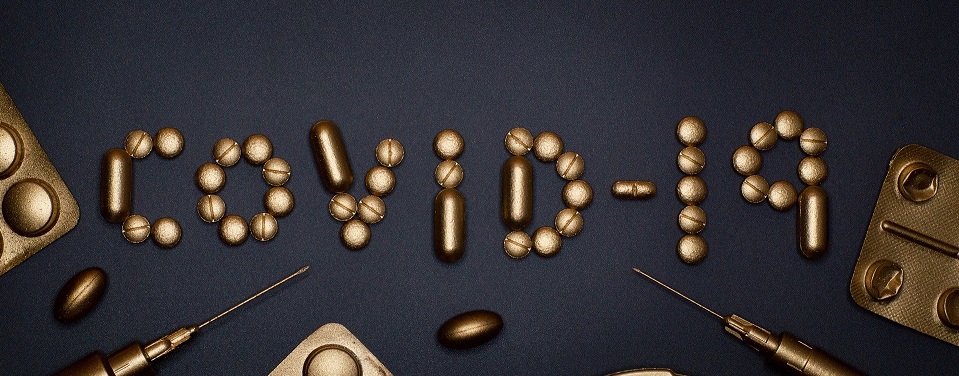
There’s plenty to worry about during the COVID pandemic. The virus, obviously. But also strains on finances, family relationships, education, and the social fiber of our communities. Who has time to worry about wellness?
In May 2020, Conquer MG invited panelists Julie Rowin, MD (left), and Maria D. Zepeda, NBC-HwC (right), to discuss why self-care is so important in the face of pandemic stresses. Below is a recap of their comments.
Thanks to our sponsors!


About our speakers
Julie Rowin, MD, is a medical doctor board certified in Neurology, Neuromuscular Medicine, Integrative Medicine, and Acupuncture, with additional training and expertise in Functional Medicine, Ayurvedic Medicine and Yoga. Website: https://www.julierowinmd.com/
Maria D. Zepeda is a National Board Certified Health and Wellness Coach. Website: http://www.healthyheartcoaching.com/
“Now more than ever we need to take care of ourselves,” says Maria Zepeda, NBC-HwC. “The payoff is huge; we’re more prepared mentally and physically to handle stress and illness.” Julie Rowin, MD, agrees, noting, “Exercise, eating nutritious food, connecting to nature and others, enjoying time with a pet…it all contributes to a healthy immune system.”

What is “wellness”?
Rowin: It’s a quest for wholeness, for optimal health in your mind, your body, and your spirit. Your health is a foundation that supports all aspects of your life. If your life includes a chronic medical condition, wellness practices will support that too.
In wellness we talk about healing or taking a medication. Healing – or the quest for wholeness – works from a root cause level, and therefore can improve many aspects of your life.
How is your immune health part of wellness?
Rowin: Wellness strategies affect all aspects of your health, including your immune health. Your immune system is made up of cells just like the rest of your body. We know from science that your gut health connects to your immune health, mental health and hormones. It’s all one big system. You can think about it this way: “If I’m feeding my body toxins, processed food, and negative thoughts, when we know all these things are connected, then how is my immune health being affected?”
During the pandemic, things that we know to be disease-causing are becoming the norm, and therefor are posing an even bigger threat to our health: prolonged stress, social isolation, lack of physical activity, and poor dietary habits. We need to change how we talk about this.
Does the pandemic pose a bigger threat to those who have myasthenia?
Rowin: Yes, but I think there are some misconceptions. Having an autoimmune disease doesn’t put you at higher risk for COVID by itself as far as we know. However, issues arise if your MG is not well-managed and you have respiratory weakness or swallowing problems. In this case you could have trouble fighting off an infection or pneumonia. So stay on your medications, and keep your disease under control as much as possible.
Immune-suppressants may put you at higher risk for a serious or more prolonged infection. If you’re on prednisone (at higher doses), azathioprine, CellCept, or rituximab, for instance, you may have trouble getting over a viral illness. We don’t have clear data at this time. Often people who have MG have other illnesses that complicate things, too. Some of the MG medication side effects worsen weight gain, type 2 diabetes, and hypertension. These can add to your degree of risk, but I want to stress that these are modifiable risks. There are steps you can take to ease or even reverse these side effects.

Loneliness
Rowin: Some of this social distancing is increasing loneliness. Loneliness may be an even stronger risk factor for heart disease than obesity.
Zepeda: It’s time to come up with creative ways to socialize. It might be time to work on your health in other ways, too. Perhaps it’s time to modify your diet. Turn off the news; it can be tough on your mindset. Go for a walk. Get that Vitamin D and Vitamin E.
Rowin: It’s tough! I don’t like zoom parties. But I’m trying to get creative about staying in close contact with those who are uplifting, with those who support me in my decisions. Pick up the phone. Have a zoom party. Make the effort.
Zepeda: The key element is to reach out to others. Email is another way to keep in touch.
Effects of pandemic stress
Rowin: Several years ago in JAMA (Journal of American Medical Association), there was an article that linked autoimmune disease to prolonged stress. I believe stress exacerbates autoimmune disease. It’s a difficult time for many people, with the prolonged stress causing elevated cortisol levels.
Zepeda: People think stress will go away. But there’s always stress. That’s why coping strategies for stress are really important. Depending on your lifestyle and personal preferences, there are ways you can minimize it. You can use meditation, journal writing, or walking. Even for people who have myasthenia, it may be possible to exercise at some level.
Rowin: I often get resistance when I talk about self-care with patients. “I’m not worth it. I don’t have time.” It’s important to set aside the time: maybe for a gratitude journal, to meditate, working on some quiet breathing or prayer. It can just start with 5-10 min a day. It’s not time wasted. You’ll see the benefits in your life when you give yourself unproductive time.
Zepeda: I would add this: It’s very important to accept that we are stressed. Just accepting it is a way of destressing.

Overeating – Packing on “the COVID 19”
Rowin: It’s becoming a joke now, right? “I ate the whole cheesecake this weekend” There’s a huge connection between what we eat and our immune system. What we eat and all the stress reduction techniques we’ve been talking about directly affect our gut microbiome. We know our gut microbiome talks to our immune system and our nervous system (our brain). And they know when we eat junk food. Our gut cultivates bacteria depending on what we’re eating. The more junk food or sugar you eat, the more bad bacteria you get. The result is that your gut bacteria tells your brain: “Send down more junk food!” It’s an addicting cycle. I’d like to see us concentrating on improving that.
Most Americans have a big nutrient gap, not getting enough vegetables, fiber, and omega 3s, and have low Vitamin D levels. I see this across my patients. These are necessary for normal immune function. So eat the rainbow, all the colors of the vegetables, get good omega 3s, and get vitamin D (more sun exposure, or take a supplement.) Food is medicine. And #2, food is mood. It is common to feel anxious, to get depressed. There is a huge association between what we eat and our mood.
Zepeda: There are ways to not overindulge. Don’t buy [junk food]. Don’t bring it in the house. Or when you’re about to reach for it, pause. Ask yourself, “Am I hungry? Bored? Stressed? Why do I need to have this?” Take a couple breaths. You might find you’re not hungry, or might not want it now. Do something else. Water consumption is important, too. Sometimes we mistake being hungry for being thirsty. Give your brain enough time to understand that it’s not hungry anymore. Once you start eating healthier foods, your body will respond.
What’s so bad about junk food?
Rowin: There are so many chemicals and processed substances in it. Your immune system doesn’t recognize the preservatives, additives, herbicides, and pesticides. Think about it: you eat a chemical and your immune system doesn’t recognize it and goes after it. The toxins make your immune system less functional. Plus a lot of junk foods have a high glycemic index.
Zepeda: Junk food creates a lot of inflammation in your body long term. And that’s when you start feeling sick. That’s what inflammation is – your immune system trying to rid your body of those chemicals. When it’s chronic, symptoms of illness develop. That’s why you want to avoid those foods.

Not being active
Zepeda: Not being able to go outside doesn’t mean you can’t do anything. With MG, I thought I couldn’t be active because it would wear me out easily. Honestly, I used it as an excuse. I started doing as little as possible. Now, I understand movement is important; it has healing properties in our bodies. We can walk around the house, 10 times…20 time next time. Something is better than nothing. Being active is critical for our health.
Rowin: Exercise is the fountain of youth. The benefits are far-reaching. It helps your immune health, mental health. Everything counts – cleaning the house, walking the dog, washing the windows.
Questions
Q: It’s confusing that MG patients need to boost their immune systems when they are on immune-suppressants. It sounds counter-intuitive.
Rowin: I think we throw around these terms: strong immune system, weak immune system, boost the immune system…and it’s not really how it works. What we really want is a smarter and more balanced immune system. We want to be able to turn on the inflammatory response when we need it to fight a virus. But we don’t want it on all the time, causing inflammation and attacking our neuromuscular junctions. Your immune system needs to have the right nutrients – the right food and activity – to perform optimally, with the proper balance.
Q: I’m concerned about the chemicals in disinfectants that we’re using out of fear for the coronavirus. My goal has been to reduce my exposure to disinfectants. Many of these chemicals are known to interfere with neurologic and endocrine and immune development. Are we making the problem worse with this cleaning?
Rowin: Great question. I do think we have a lot of toxins in our environment. With my patients I try to discuss how they are “detoxifying.” First, consider the quality of your indoor air. There is a misconception that staying home means staying inside. If you’re using these cleaners, be sure to ventilate. Open the windows, get fresh air. Go outside. Also, drink plenty of fresh filtered water – half your body weight in ounces each day. Put aside alcoholic and sugar beverages. Next, fiber is super important. Bowel movements get rid of toxins. Ramp up on cruciferous vegetables (broccoli, cauliflower, etc.). If you’re able, exercise to the point of sweating. Businesses and stores are disinfecting, so limit the time you spend in these places.
Zepeda: Try to use soap and water during the day instead of the wipes and Lysol.
DISCLAIMER
The information presented here not intended or implied to be a substitute for professional medical advice. All content is for general information purposes only. Individual results may vary.
Always speak to your physician before making any lifestyle changes.






